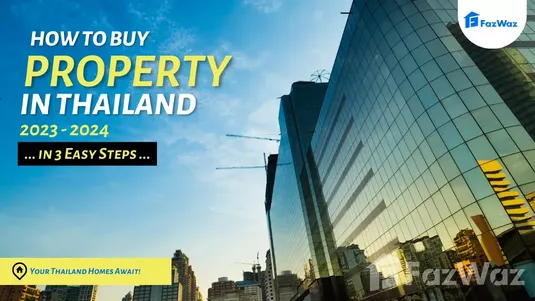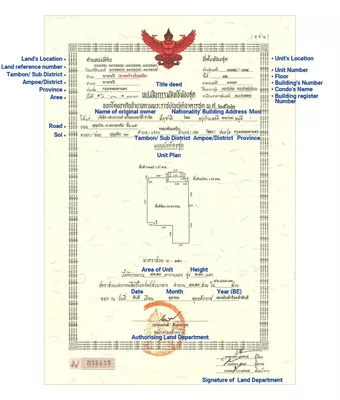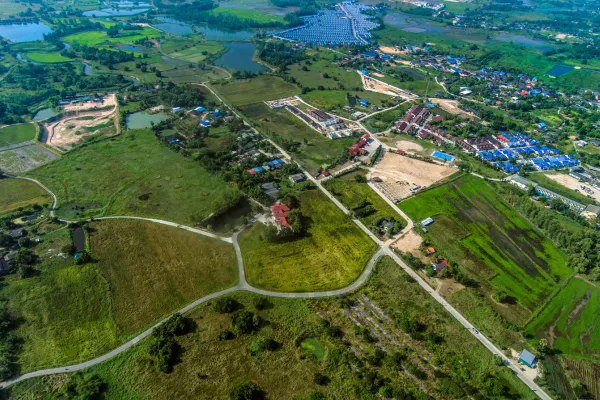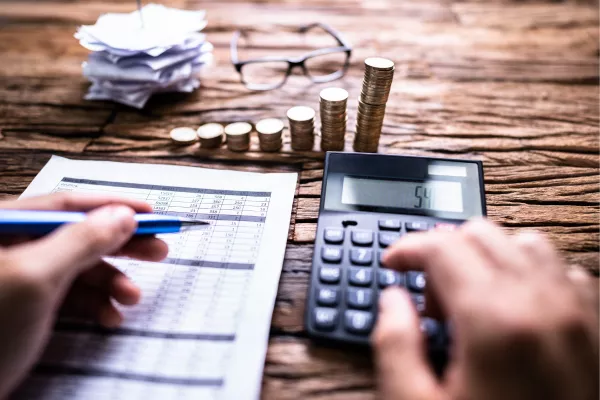- List your property - it's free
- Sign up or Log in
-
English- en
-
THB - ฿
- Buy
- Thailand Property For Sale
- Thailand Real Estate
- See Newest Listings
- Why Buy with FazWaz
- Rent
- Sell
- Projects
- Advice
- Property Management
- Vacation Rental Management

|
Is it hard to buy property in Thailand if you're not a local? Thailand's breathtaking landscapes, rich culture, and promising investment opportunities captivate the hearts of foreigners worldwide generating interest in Thailand property market. To buy property in Thailand, while the process seems daunting at first glance, no worries! We are here to provide you with a complete guide to start your home buying journey. Stepping into the Thai property scene in 2023 - 2024 is not only feasible but also potentially lucrative with the right knowledge and preparation. In this comprehensive guide, we'll figure out the essential steps on how to buy property in Thailand from the legal framework to pinpointing the perfect locale ensuring your journey from contemplation to property ownership in the Land of Smiles is smooth and straightforward.
Table of Contents |
To buy property in Thailand is simple with some rules and procedures for expats to know. Foreigners can indeed own property in Thailand with some restrictions, and the options available include condos, houses, and land. Well, one way for a foreigner to buy property in Thailand is to start a business. Simply put, you create a Thai Limited Company, and through this company, you can buy land and a house with the land owned by your Thai company and the expat holding the majority of the company’s shares. Below are lists of what foreigners can and can't own in Thailand:
Let's go in depth on how to buy your property in Thailand and explore ways you can buy your own condo or house and even land in Thailand.
Buying Thai houses as foreigners with ease, we provide you with the following three options to dive into Thailand property market.
Condos in Thailand are popular for foreigners looking to buy and own property. Legally, foreigners can enjoy condo freehold ownership meaning they can own condos outright, but with a specific condition: only 49% of a condo building's units can be foreign-owned while the remaining 51% has to be owned by Thai nationals. You can also purchase a condo with your name registered on the title deed, known in Thai as "Chanote," which grants you full ownership of the unit. This approach not only simplifies the buying process but also provides a clear and legal ownership structure making condos a favored choice among expats and international investors in Thailand.

Next option is to buy land in Thailand, which presents a different set of opportunities and challenges for foreigners. While direct land ownership is typically off the table for non-Thai citizens, there's a workaround through leasehold ownership. Foreigners can lease land for 30 years (two additional renewals extending the total lease period to 90 years). On leased land, you can build your dream villa or establish a business making it a viable option for those looking to settle down or invest in Thailand. This option is particularly ideal for foreign retirees looking for a holiday home offering a long-term solution to enjoying the lush landscapes and serene beaches of Thailand well into retirement.
Many foreigners navigate Thailand's land ownership restrictions by forming a Thai Limited Company, which legally requires at least 51% Thai ownership. It's crucial to note that using nominees without active business roles is illegal, so involving genuine shareholders who participate in the business is key to maintaining legal and compliance. This strategy is popular among expats and investors buying land and allows them to manage the company and adhere to legal frameworks, intertwining their lifestyle and business ventures in Thailand’s captivating locales.
Besides owning leasehold land or establishing a Thai business, expats considering an investment of a maximum or over 40 million Thai Baht should also explore the 49-51 ownership ratio, keeping in mind the following key rules:

Don't know where to start with buying property in Thailand? Let’s walk through it together, step by step, ensuring you’re well-equipped with the essentials on how to secure your dream property in this tropical paradise. But before you decide, there are some key terms related to property titles and rights in Thailand that is useful for you to understand:
Now, let’s delve into the steps to buying property, ensuring your journey from browsing to owning is as smooth as possible. Start by identifying your preferred property type and location, then dive into the financial aspects ensuring your budget aligns with your desires. Engage a local lawyer to safeguard your interests, and don’t forget a thorough property inspection to avoid any unforeseen hiccups.
Yes, foreigners can indeed buy leasehold, freehold, and off-plan properties in Thailand, each offering its own unique advantages and considerations. While leasehold allows long-term stay, freehold in condominiums provides outright ownership, and off-plan properties offer the potential of securing future real estate at today's prices.
Yes, you can certainly buy leasehold properties in Thailand! By law, foreigners can secure a leasehold for a maximum of 30 years with the possibility of renewing it for an additional 30-year period. This option is particularly popular for those looking to invest in landed properties like houses or villas, as it allows you to have a right over the property, use it, and obtain benefits from it. While you won't own the land outright, a leasehold still provides a stable and legal framework for enjoying property in Thailand for the long term.
Absolutely, you can buy off-plan properties in Thailand! Investing in off-plan properties means you're purchasing a property before it's completed, often before construction has even started. It is a popular option among foreigners due to the potential benefits, such as lower initial prices and the possibility of capital appreciation during the build period.
Yes, you can buy freehold properties in Thailand, but with some conditions. Foreigners can directly own freehold condo units as long as foreign ownership within the condominium building does not exceed 49%. This means that Thai nationals must own the remaining 51% or more. When purchasing a freehold condo, your name will be on the title deed, granting you full ownership of the unit. However, when it comes to landed properties like houses or villas, direct freehold ownership is not typically available to foreigners.

Buying property in Thailand as a foreigner involves understanding and navigating various taxes. You'll encounter a transfer fee, typically 2% of the registered value often shared between buyer and seller. Additionally, you should prepare for a stamp duty of 0.5% and specific business tax of 3.3% calculated based on the assessed value or sale price whichever is higher. If you decide to rent out your property, your rental income will be subject to a withholding tax: 5% for individual landlords or 1% for corporate landlords. Being aware of these taxes ensures a smoother and more transparent property transaction and management process in the Thai market.
Why is median price important? The median price offers a clearer picture of the typical cost as it's the middle value when all prices are arranged in order. Here, you'll find the median sales price for Thailand properties sitting at approximately THB 5,990,000. With a median price per square meter of THB 111,000 and a substantial 44,116 properties currently up for grabs, there's a diverse range of options available for every investor or home-seeker. Now, let's delve deeper into the condo prices across 6 regions below on our FazWaz website to pinpoint your ideal locale.
| Region | Avg. Median Price (THB) | Avg. Median Price/ Sq.m. (THB) |
| Bangkok | 5,930,000 | 151,000 |
| Hua Hin | 5,540,000 | 103,000 |
| Pattaya | 3,820,000 | 95,500 |
| Chiang Mai | 3,350,000 | 76,900 |
| Phuket | 5,490,000 | 124,000 |
| Koh Samui | 4,730,000 | 77,600 |
The table presents a diverse Thai property market with Bangkok standing out with the highest average median price of 5,930,000 THB and a notable 151,000 THB per square meter. For those seeking more budget-friendly options, Pattaya and Chiang Mai offer enticing choices with properties priced at 3,820,000 THB and 3,350,000 THB respectively, and per square meter prices comfortably below 100,000 THB. Meanwhile, Phuket, Hua Hin, and Koh Samui strike a middle ground in pricing offering coastal charm and relative affordability blends. Expats exploring property investments in Thailand should consider these varied options ensuring they find a locale that aligns with both their lifestyle and budgetary preferences.

Your dream home in Thailand is just a few steps away! With the lush landscapes, vibrant cities, and serene beaches, there’s a piece of paradise waiting just for you. Whether it’s a freehold condo in Bangkok, Phuket leasehold villa, or an off-plan investment in Samui, your path to owning property in Thailand has never been clearer. Dive into the adventure today, explore the myriad of options available, and take that bold step towards securing your own slice of Thailand. Let the journey to your dream home begin, and immerse yourself in the enchanting beauty and rich culture that Thailand has to offer!